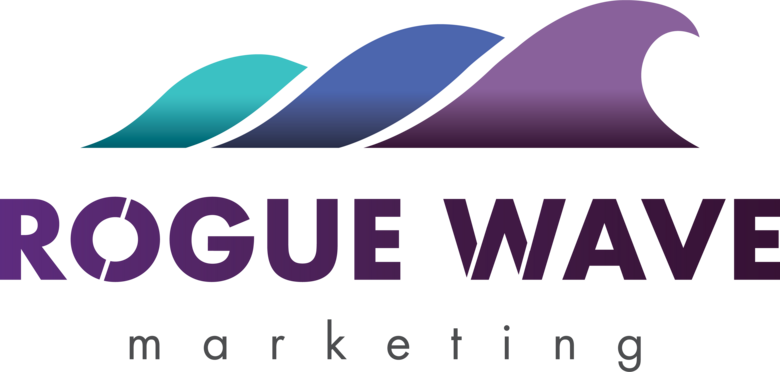
No matter what type of business you run, a good marketing approach is essential to your long-term success. Without clear marketing goals, you’re more likely to become stagnant in terms of growth and momentum. However, coming up with effective goals can be challenging if you don’t have some type of framework to follow. That’s where the S.M.A.R.T. goal system can come in handy. Here’s how to develop SMART marketing goals for your business.
Understanding SMART Marketing
To ensure you stay on track and motivated, all SMART goals contain the following five elements:
- They are specific.
- They are measurable.
- They are achievable.
- They are relevant.
- They are time-bound.
All five of these elements are necessary to create the most effective plan for success. Here’s a deeper dive into what each of the SMART goal elements entails.
Specific
It’s great to have lofty goals like growing your business and increasing your online visibility. However, these types of goals are so vague and general that they don’t give you something concrete to work on. To maximize your likelihood of actually reaching your marketing goals, they need to be specific. For example, you might set a SMART marketing goal to boost your web traffic or increase your conversion rate by a specific percentage. The more specific your goal, the easier it will be to create an action plan to reach it.
Measurable
Being able to measure your progress is a critical part of any SMART goal. Once you have a quantifiable objective to reach, you can define what data you’ll use to measure your progress. Figure out what performance benchmarks will you use to define your objectives. Then set up a system to periodically measure and track your success.
Achievable
Having a pie-in-the-sky mentality isn’t ideal when it comes to making goals. Sure, you want to set goals that will challenge you and motivate you to work hard, but you don’t want completely unrealistic goals. If your SMART marketing goals seem impossible to reach, you’ll inevitably be met with failure and disappointment along the way.
When setting goals, use reliable data to analyze how attainable they are. That way, you can make adjustments as needed to ensure your goals are optimistic but achievable.
Relevant
Don’t make random goals just so you have something to work toward. Your marketing goals should always be carefully thought out and relevant to the overall mission of your company. To determine if a goal will drive your closer to your company’s main mission, define the key benefit your business will receive if you achieve your goal.
Time-Bound
All SMART marketing goals should come with deadlines. Without this key component, you won’t really know when to measure your failure or your success. To ensure you reach your goal in a timely manner, always give yourself a realistic (yet challenging) deadline to reach. Depending on how complicated your goal is, you may need to break your goal into different pieces and give yourself deadlines for each piece.
How To Create SMART Goals for Your Marketing Team
Now that you know what SMART goals are, it’s time to figure out how you can use them to enhance the productivity of your marketing team. Coming up with SMART marketing goals can be challenging if you’ve never done it before.
Imagine you and your marketing team have set a goal to get more online reviews. This common marketing goal is pretty vague if you don’t go into greater depth. Using the SMART method, you can transform this goal into one that’s more specific, measurable, achievable, relevant, and time-bound.
For example, you can set a goal to earn 10 online reviews every month. To help you achieve your goal, you may analyze what competitors are doing to earn reviews. If you discover that most of your competitors’ clients are leaving reviews directly on their websites, you can take action to earn more reviews on your own site.
Part of this process could involve creating a response portal on your site by a certain date. You might also decide to hire someone to update your website by a certain date so that your clients are more engaged by the first impression your site makes. After all, you don’t want to bother increasing website reviews unless you’re certain clients are going to view your website in a positive way.
With this, you’ve used the SMART marketing goal process to successfully create goals that will benefit your business, as well as a plan of action to help you reach those goals by the intended date. Once you utilize this process a few times, you’ll soon discover that making SMART goals becomes second nature to you.
Try using the SMART goal process to help you make the following vague goals much more specific and achievable:
- Using social media marketing more effectively
- Increasing customer satisfaction
- Finding new leads
- Introducing new services and products
- Building your email marketing campaign
With the right SMART marketing goals, you can establish your business as an authority in your industry and build client confidence in your brand.
How can we help?
At Rogue Wave Marketing, we reveal the uniqueness of every brand through inspirational and impactful messaging and content catered for your audience.
How To Most Effectively Use SMART Marketing Goals
If your business isn’t currently using SMART goals to improve the results of your marketing campaigns, consider implementing them as soon as possible. Professionals across all industries are learning that SMART goals can make a huge difference in whether or not they actually accomplish the things they set out to do.
No matter what types of SMART marketing goals you create for your business, it’s great to have help achieving them. Whether you’re working with a small in-house marketing team or you’re trying to handle your company’s marketing on your own, Rogue Wave marketing can help. We provide website design and development services to ensure that your site makes a good impression on visitors, or let us help you achieve your SMART goals by making sure your branding is on point. If you’re ready to learn more about how we can help you with your website, branding, and logo design, contact us today.








